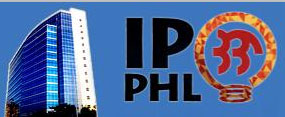
“Anonymous Philippines,” the same entity that defaced a string of government and non-government institutional websites Wednesday night, attacked the IPOPhil’s website www.ipophil.gov.ph.
An image of a devilish face – an eerie version of the lady in the Victoria Court emblem – was posted on the homepage. “Freedom!” was posted below the image, followed by a suggestion that this won’t be the last of its hacking. “We are legion. Expect us!” Anonymous Philippines said.
IPOPhil thus became the 7th official institutional site defiled by the hacktivist group. The government site was back to normal by Friday morning.
Asked whether the Department of Trade and Industry, which supervises the IPOPhil, was implementing precautionary measures against further hacktivist attacks, Trade Secretary Gregory Domingo said in a text message to Inquirer on Friday: “For every solution that is implemented, another new approach is developed by hackers. So this is the way it will be.”
“We just have to continue our best to cope in protecting our systems and data,” Domingo said.
In the last two nights of its website adventurism, Anonymous Philippines has met a mix of cheers and jeers from netizens. There were those who lambasted the hacking and its counter-productive effects, noting that these acts only vindicated the advocates of the CyberCrime Prevention Act of 2012.
The hacktivist entity, whether singular or collective, also won its share of admirers. There were many users of microblogging site Twitter who said they agreed with the message while some wanted to join the anonymous organization.
In a statement posted on the six official websites it hacked Wednesday night, Anonymous Philippines lamented that the CyberCrime Prevention Act of 2012 had effectively ended the Freedom of Expression in the Philippines.
It said this law was “the most notorious act ever witnessed in the cyber-history of the Philippines, and the language of the bill is cunningly designed to make you think it only applies to individuals who are deep in cyber-technology and doesn’t apply to everyone, but some part of the bill basically says it can imprison anyone who commits libel either by written messages, comments, blogs, or posts in sites such as Facebook, Twitter, or any other comment-spaces of other social media in the Internet.”
The websites defaced Wednesday night were those of Bangko Sentral ng Pilipinas, Metropolitan Waterworks and Sewerage System, the Philippine Anti-Piracy Team, the anti-smoking campaign unit of the Department of Health and think tank Institute for Development and Econometric Analysis.


